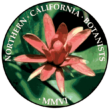Post Symposium Workshops
15 January 2025
Optional post-symposium workshops/field trips are scheduled for the Wednesday following the Symposium. You do not have to attend the Symposium to register for a workshop. To register for a workshop, visit the Registration Page.
Workshop 1: Riparian and floodplain habitat restoration at Bidwell-Sacramento River State Park
Leaders: Michael Rogner, Associate Science Direction, River Partners and Ryan Martin, Natural and Cultural Resources Manager, Northern Buttes District, California Department of Parks and Recreation
Time: 8:30 am - 1:30 pm
Location: Meet at Pine Creek Access parking lot off of River Road or can carpool to the site from Chico Park n Ride (directions will be sent to participants prior to the date). Hiking boots or rubber/muck boots recommended. Will go rain or shine.
Cost: $25
Join State Parks and River Partners on a tour of habitat restoration sites within the Bidwell-Sacramento State Park. The first stop will be the Brayton Unit, where 25-acres of former walnut orchards were restored (2021) to mixed riparian forest using over 30 native plant species. On a short hike through the restored forest, we will discuss the challenges in implementing and maintaining riparian habitat at a scale consistent with the State’s ambitious 30x30 Conservation Plan. The group will then proceed a short distance downstream to the Indian Fisheries unit of the Park, where the project team is working with the Mechoopda and Yurok Tribes to increase frequency of floodplain inundation for the benefit of juvenile salmonids. This short hike through remnant habitat will focus on how diminished river processes resulting from a managed river system impact the native plant community, and what is being done to restore habitat resilience in a time when much of our native wildlife is in peril.
Workshop 2: How to develop a local flora - Workshop 2 is cancelled
Instructor: David Magney, Principal Biologist, Althouse and Meade, Inc.
Time: TBD
Location: CSUC, BMU Room TBD
Cost: $50 (workshop will be cancelled without a minimum of 10 participants)
In this workshop, David will show a variety of methods and tools to develop, research, and publish a local flora. No longer do botanists need to physically visit one or more herbaria to determine which taxa are known to occur within a study area. The internet has changed much of what we need to do now since millions of records of plant occurrences are published online as checklists, databases, and individual observations.
An examination of the basic requirements of publishing a local flora will be discussed and then what methods and tools are available to compile existing data. This will also show the researcher where gaps in data or plant occurrences occur, which allows you to focus your attention on filling those data gaps.
There are numerous ways botanists can publish their research and each approach will be discussed to help you decide your preferred vehicle to publish your findings.
This workshop will assume that you know nothing about how to research and publish a flora but will be detailed in showing you specifics on the various approaches.
Workshop 3: Employing climate resilient restoration tools for plant selection
Instructor: Justin Luong, Assistant Professor, Cal Poly Humboldt; Ernesto Chavez-Velasco, graduate student, Luong Lab, Cal Poly Humboldt; Kerry Byrne, Associate Professor, Cal Poly Humboldt; and Erika Foster, Director of Soil Research and Conservation, Point Blue Conservation Science
Time: 8:30 am - 11:00 am
Location: CSUC, Bell Memorial Union, 2nd Floor, Room 210
Cost: $40
Grasslands provide a multi-faceted benefit to ecosystem functioning and services, but it may be unclear which species contribute most to different functional aspects of an ecosystem. To address these issues, The California Grassland Action, Science and Stewardship Network (GRASS-Net) worked to update an existing plant selection toolbox, originally developed by Point Blue Conservation Science. Join us for an interactive workshop as we provide a tutorial and Q&A session to discuss the newly updated GRASS-Net Plant Selection toolbox. The toolbox was developed from sourcing published information about the tolerances and ecosystem outputs for different native species and helps inform what mix of species will have best contributions to various ecosystem functions such as insectaries, drought tolerance, salinity tolerance and more. We will provide a step-by-step tutorial on how to use the toolbox and read its outputs to inform coastal grassland restoration projects with an easy R-Shiny interface. We will host Q&A periods throughout the tutorial and solicit feedback from participants at the end of the session to further tune our plant selection toolbox, and to inform the development of an additional selection tool that models which native plant species will perform best based on local climate and soil conditions.
